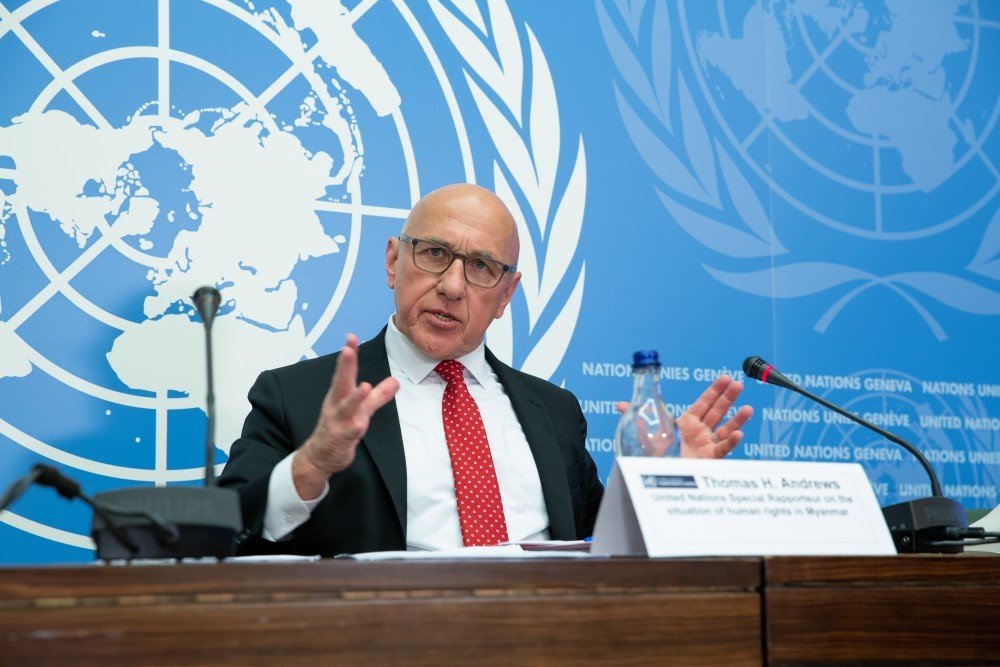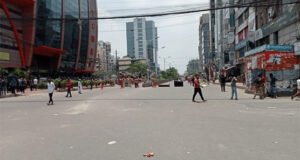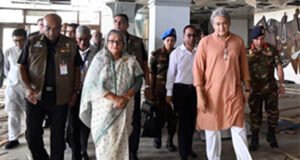
Bangladesh must immediately suspend a pilot repatriation project for Rohingya refugees to return to Myanmar, where they “face serious risks” to their lives and liberty, a UN expert said on Thursday.
UN Special Rapporteur on the situation of human rights in Myanmar, Tom Andrews, said there were reports that Bangladeshi authorities were using “deceptive and coercive measures” to compel Rohingya refugees to return to Myanmar, UNB reports.
“Conditions in Myanmar are anything but conducive for the safe, dignified, sustainable, and voluntary return of Rohingya refugees,” Andrews said.
“Senior General Min Aung Hlaing, who commanded the forces that launched the genocidal attacks against the Rohingya, now leads a brutal military junta that is attacking civilian populations while denying the Rohingya citizenship and other basic rights,” he said.
Bangladesh officials have stated that an initial group of 1,140 Rohingya refugees will be repatriated to Myanmar at an unspecified date and 6,000 will be returned by the end of the year. Actions by Bangladesh authorities suggest that the first return could be imminent.
“There are also reports of refugees being promised large sums of money, if they agree to return. These promises are allegedly being made even as food rations are being cut to $.27 per person per day for those in the Bangladesh camps. It remains unclear where the funds for repatriated families will come from,” Andrews said.
Under the pilot project, Rohingya refugees will not be allowed to return to their own villages, many of which were razed to the ground during the genocidal attacks of 2017. The refugees would pass through “reception” and “transit” centers in Maungdaw township, after which they would be moved to a designated area of 15 newly constructed “villages” – places they would not be allowed to leave freely.
In March, Bangladesh authorities facilitated two visits by Myanmar junta authorities (SAC) to the Bangladesh camps.
Bangladesh and SAC officials also coordinated a “go and see” visit to Rakhine State for some Rohingya refugees. Bangladeshi officials said the refugees had expressed “general satisfaction” with arrangements made for their return, but these assurances were contradicted by reports that those who participated in the trip had unequivocally rejected the repatriation plans.
“The return of Rohingya refugees under these conditions would likely violate Bangladesh’s obligations under international law and expose Rohingya to gross human rights violations and, potentially, future atrocity crimes,” the Special Rapporteur said.
“I implore Bangladesh to immediately suspend the repatriation pilot programme,” Andrews said.
“I also urge the international community to stand with Rohingya refugees in both word and deed. This must include reversing the failure to provide a humane level of support for Rohingya refugees in Bangladesh who are unable to pursue livelihoods, continue to face hunger and malnutrition, and whose children have very limited educational opportunities,” the expert said.
 Weekly Bangla Mirror | Bangla Mirror, Bangladeshi news in UK, bangla mirror news
Weekly Bangla Mirror | Bangla Mirror, Bangladeshi news in UK, bangla mirror news







